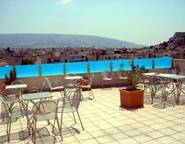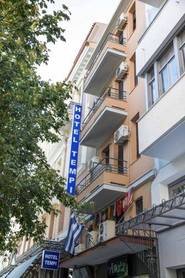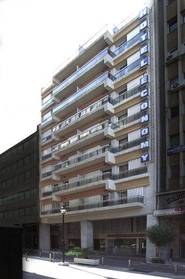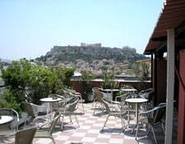Technically an island (ever since the 1893 completion of the Corinth Canal) the Peloponnesus is nonetheless considered to be the southern-most region of Greece's mainland. The Peloponnesus is undoubtedly one of the most beautiful (and affordable) parts of the entire country.
Pure and Simple: Exploring the Peloponnesus for Less

Surrounded by the sea and constituted primarily of magnificent mountains, the Peloponnesus has been inhabited since pre-historic times and is home to many important archaeological sites, dating from the Bronze Age through the Middle Ages. Whether you want to hike or swim, explore nature or visit ancient sites, the Peloponnesus and its passionate people deliver the goods.
Keeping It Cheap in the Peloponnesus
When planning your trip to the Peloponnesus area of Greece, follow these five suggestions to make the most of your stay for the least amount of money:
-
Visit the Peloponnesus in any month other than August.
-
Rent a car.
-
Stay as long as you can in one apartment.
-
Stay in a town not popular with tourists.
-
Stay in a town strategically located to give you easy access to the rest of the Peloponnesus.
Visit the Peloponnesus in any month other than August.
From September through July, you will encounter fewer crowds at ancient sites, in museums, in restaurants, on the roads, in hotels, and everywhere else you set foot. The temperatures will be more moderate and comfortable and the vegetation more lush. You will also find lower rates for accommodations and car rentals, and occasionally even obtain lower menu prices.
Rent a car.
The best and least expensive way to see the Peloponnesus (provided that you're not traveling solo) is by car. You can rent the smallest car possible for you and your travel companions, which means you'll use less gas and have the flexibility to come and go at times that work for you. There are many parts of the Peloponnesus that are awe-inspiring in their natural and architectural beauty, historical value, and cultural offerings. Invariably, these spots are fairly far off the beaten transportation track. To visit even two or three of them via public transportation will require more time than you may be spending in the Peloponnesus altogether.
Stay as long as you can in one apartment.
Most owners of bungalows and studios throughout the Peloponnesus are more than happy to negotiate a lower rate for those who stay with them for five or more consecutive nights. Take advantage and save by renting one studio or bungalow and using it as your home base, taking day trips from there. You can also buy food at a local market to enjoy in your Peloponnesian home or to take in the car with you, cutting down your food costs. Many towns have delightful weekly farmers markets offering delectable delights all year long.
Stay in a town not popular with tourists.
Staying in a town not as well-known for its tourist offerings as one of its neighbors is a great way to save money in the Peloponnesus. Despite their proximity to popular tourist destinations, towns which are not themselves frequented by tourists do not charge as much for accommodations or dining out as their more popular neighbors.
For example, Argos, believed to be the oldest continually-inhabited town in Greece (if not in all of Europe) is 12 kilometers from Nafplio, one of the most charming towns in Greece. While Argos has its own draws—among them, an ancient amphitheatre built directly into the hillside (ancient Greek plays are still performed there every summer), an ancient fortress, a lovely center square with a striking church and cafes, and a fantastic farmers' market every Saturday morning—it is often neglected by tourist books and guides, overshadowed by its enchanting neighbor, Nafplio. A hotel or apartment in Nafplio, however, could cost you up to 50% more than comparable accommodations in Argos, which is just a 10-minute drive away.
Stay in a town strategically located to give you easy access to the rest of the Peloponnesus.
Many Greeks visit the Peloponnesus in this manner. If you're lucky, you'll make friends with locals and experience a stay in an "exohiko." An exohiko is a house outside of their hometown, usually passed down through the generations. Many Greeks have access to their family's exohiko, or they stay with friends who have one. Unless they are among the wealthiest of their compatriots, Greek holiday-seekers do not generally flock to the most popular destinations and stay in the most expensive hotels. Rather, they simply visit tourist attractions while using their or their friends' exohiko as a jumping-off point.
Whether or not you're lucky enough to have access to an exohiko, do as the locals do and station yourself in a strategically well-located Peloponnesus town.
Helpful Peloponnesus Links
For more information about the Peloponnesus, check out:













